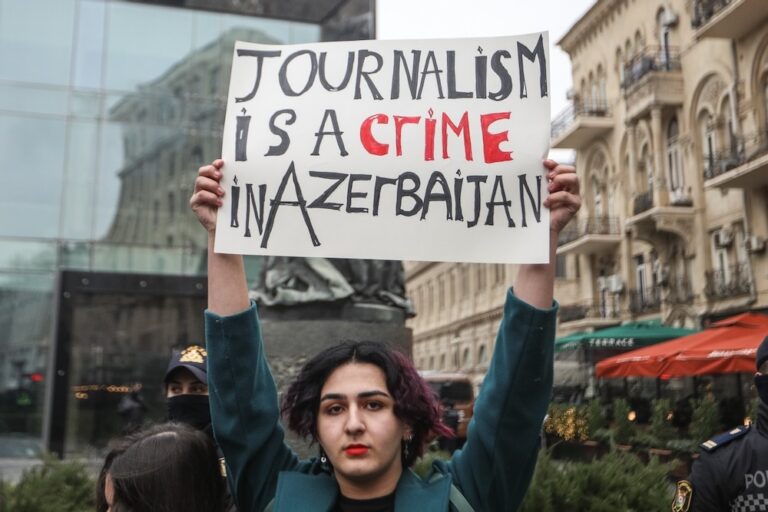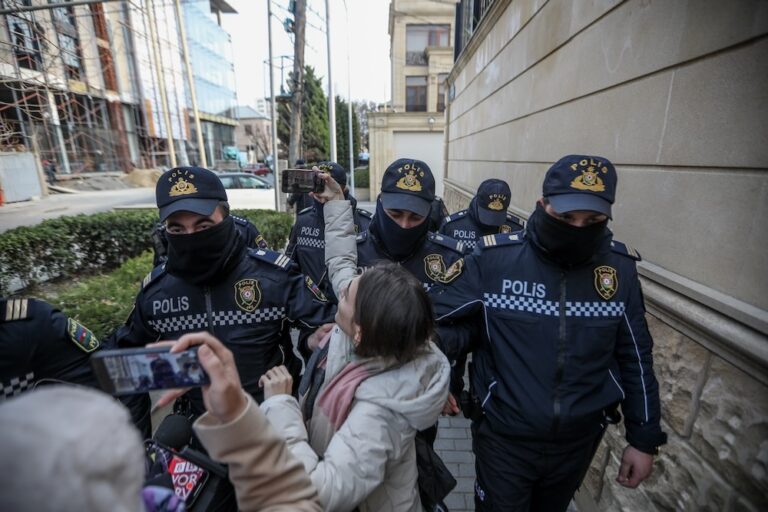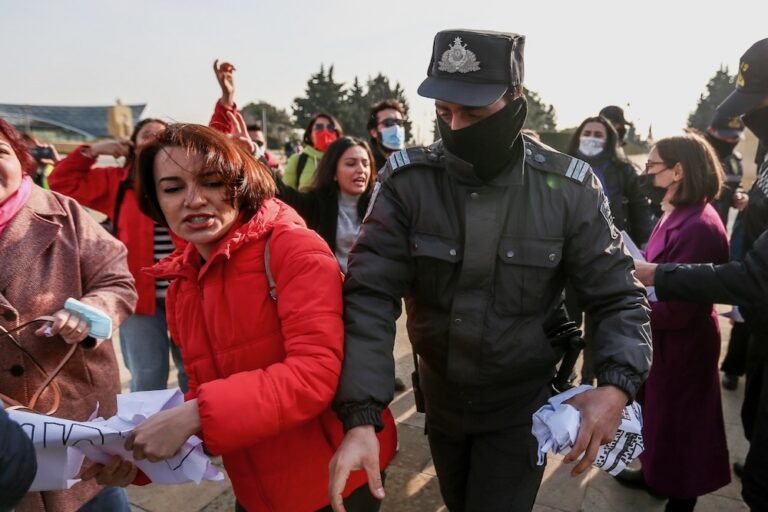The six opposition activists were sentenced to prison terms of up to three years following unfair trials over their role in anti-government protests.
(Human Rights Watch/IFEX) – New York, August 29, 2011 – Azerbaijani courts sentenced a human rights defender to three years in prison following a flawed trial on dubious charges of interference with parliamentary elections, Human Rights Watch said today. Separately, six other opposition activists were sentenced to terms of up to three years following unfair trials over their role in anti-government protests.
The Azerbaijani authorities should end their crackdown on critics of the government and release the imprisoned activists, Human Rights Watch said.
“These trumped-up charges and flawed trials show how this government operates to silence critical voices,” said Hugh Williamson, Europe and Central Asia director at Human Rights Watch. “This is not the way any state – far less a Council of Europe member – should respond to the grievances of its own people.”
On August 27, 2011, Goychay District Court sentenced Vidadi Isganderov, a human rights defender, to three years in prison. He was found guilty of interfering with the November 2010 parliamentary election under three articles of the criminal code: 159.3 (forcing somebody to vote against their will), 160.1 (interference with the activities of the electoral commissions), and 132 (battery).
Isganderov was a candidate in the elections for the Agdash-Goychay electoral district. Following the elections he submitted a complaint to the police and prosecutor’s office alleging vote rigging in his district. He provided materials, including video footage, in support of his allegations, but the authorities failed to investigate them. Instead, they brought charges against him.
Isganderov’s conviction followed a decision on August 26 in Baku’s Sabail District Court to sentence six political activists to terms ranging from 18 months to 3 years for participating in unauthorized protests in April. Arif Alisli, Elnur Israfilov, Elsan Hasanov, Sahib Karimov, Zulfugar Eyvazli, and Babek Hasanov were arrested on April 2 and charged under Criminal Code articles 233 (organizing actions promoting a breach of social order or active participation in such actions), 315 (resisting a representative of the authority or using violence against them), and 186.1 (deliberate damage or destruction of property).
Isganderov’s lawyer told Human Rights Watch that during the trial he was not able to effectively present a defense and that Isganderov was convicted despite the absence of evidence to substantiate the charges and much conflicting evidence. For example, Isganderov was accused of intervening with electoral commission members in three polling stations, alleging that they had falsified ballots. However, Isganderov had not visited two of these precincts. Isganderov’s lawyer requested that footage from the precincts be made available. Although the judge granted the request, he rendered his judgment without having the footage.
Isganderov was also accused of forcing people to vote against their will. But five witnesses whom the prosecution called, alleging that they did not vote because they were scared off when Isganderov challenged precinct commission members, denied that account and said that they had never seen Isganderov before.
Isganderov’s trial and conviction clearly violates many of the fundamental rights protected by the European Convention on Human Rights to which Azerbaijan is a party, Human Rights Watch said. The Azerbaijani authorities have a responsibility to remedy his wrongful conviction.
Isganderov, a lawyer by training, is the head of Support for Protection of Democracy, a nongovernmental group that carries out a wide range of human rights work. He defended the rights of homeowners who had lost large sums of money to bogus construction companies and also those who had been victims of alleged police extortion. Interior Ministry officials have in recent years brought several defamation charges against him, but none resulted in convictions.
Isganderov was arrested twice in April for participating in unsanctioned opposition rallies and convicted of misdemeanor charges of disobeying police orders. He served short sentences for both. But when his second sentence was about to expire, instead of releasing Isganderov, the authorities brought criminal charges of electoral interference against him.
(. . .)


